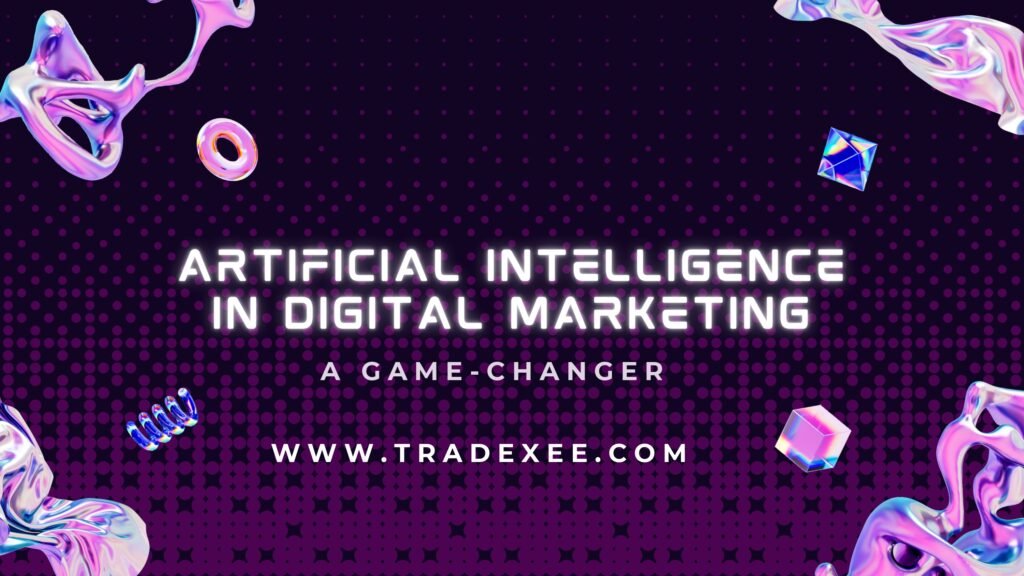Introduction:
Digital marketing isn’t what it used to be—and that’s a good thing. Artificial intelligence (AI) is redefining how brands connect with customers. From hyper-personalized ads to predictive analytics, AI isn’t just a buzzword anymore. It’s the engine powering smarter, faster, and more relevant marketing.
If you’re a business owner, marketer, or entrepreneur, understanding how AI is changing digital marketing is more than an advantage—it’s a necessity. This article will walk you through what you need to know, using real-life examples, expert insights, and research-backed data, all delivered in a human, conversational tone.
What Is AI in Digital Marketing?
AI in digital marketing refers to the use of machine learning algorithms, natural language processing (NLP), computer vision, and data analytics to automate and improve marketing strategies. This includes everything from content generation and ad optimization to customer segmentation and sentiment analysis.
Common AI Tools Used in Marketing
- ChatGPT and Jasper for content creation
- HubSpot and Salesforce Einstein for automation and CRM
- Grammarly for AI-powered writing enhancement
- Google Performance Max for ad targeting
Personalized Marketing at Scale
Gone are the days of one-size-fits-all campaigns. Today, consumers expect marketing to be tailored to their preferences, behaviors, and purchase history.
How AI Delivers Personalization
AI sifts through mountains of data in real-time to understand user behavior. It can:
- Recommend products based on browsing history
- Trigger personalized emails
- Display dynamic website content
Real-Life Example: Amazon
Amazon’s recommendation engine is legendary. It uses AI to suggest products you didn’t even know you needed—and often, it’s spot on. The result? Increased average order values and customer loyalty.
Expert Insight
“AI doesn’t just personalize, it anticipates. Brands that understand this are leading the pack,” says Sonia Patel, Chief Marketing Technologist at AdGrow.
AI-Powered Content Creation
You don’t need a huge team to produce high-quality content anymore. AI can help you scale content creation while maintaining quality.
What AI Can Write
- Blog posts (like this one)
- Social media captions
- Product descriptions
- Email newsletters
The Human Touch Still Matters
AI is excellent at drafting content, but human editors are essential to:
- Maintain brand voice
- Ensure emotional resonance
- Catch subtle errors
Case Study: Canva
Canva uses AI to generate smart copy suggestions, helping small businesses and entrepreneurs create engaging graphics and captions quickly.
Smarter Ad Targeting with AI
Digital advertising is getting a facelift thanks to AI. With real-time data processing, AI ensures your ads reach the right person at the right time.
Features Enabled by AI
- Automated bidding
- Real-time performance adjustments
- Audience segmentation
Tool Spotlight: Google Ads’ Performance Max
This AI-driven campaign type analyzes data from across Google’s platforms to optimize ads automatically. Marketers report higher conversion rates with less manual work.
Expert Quote
“AI in ad tech is like having a 24/7 data scientist on your team,” says Jake Rogers, Director of Growth at MediaNest.
Predictive Analytics: The Crystal Ball of Marketing
Predictive analytics uses historical data to forecast future behavior. It helps you make smarter decisions about where to invest your time and money.
Key Use Cases
- Customer churn prediction
- Lifetime value forecasting
- Seasonal demand anticipation
Real-World Example: Spotify
Spotify’s AI not only curates your weekly playlists but also uses predictive models to decide which songs to promote to whom, and when.
Research-Backed Insight
According to McKinsey, predictive analytics can improve marketing ROI by up to 20%.
AI Chatbots and Conversational Marketing
Customer service isn’t just about call centers anymore. AI chatbots are the frontlines of many brand interactions.
Benefits of AI Chatbots
- Instant 24/7 responses
- Handling multiple languages
- Reducing customer support costs
Example: Domino’s
Domino’s chatbot “Dom” can take orders, track deliveries, and answer FAQs, all without human intervention.
AI for SEO: Smarter Search Strategies
Search engines are evolving, and so must your SEO strategy.
AI-Driven SEO Tactics
- Identifying keyword opportunities with low difficulty
- Automating internal linking
- Optimizing for featured snippets
Featured Snippet Optimization Tips
- Use question-based headers (H2/H3)
- Include concise answers in bullet points or short paragraphs
- Add structured data (schema markup)
LSI Keywords to Include:
- AI marketing tools
- digital advertising automation
- predictive customer analytics
- personalized content strategies
- machine learning in marketing
Voice and Visual Search Are on the Rise
With smart assistants and image search gaining traction, AI is helping marketers prepare for a multimodal future.
Tips for Visual/Voice SEO
- Use alt text for all images
- Write content in a conversational tone
- Incorporate long-tail keywords and natural language phrases
Example: Pinterest Lens
Pinterest’s AI-powered Lens feature allows users to take a picture and search for related products—a game-changer for e-commerce.
Email Marketing Reimagined
Email is still king, but it’s getting a royal upgrade with AI.
AI Enhancements for Email
- Predicting optimal send times
- Segmenting audiences dynamically
- Writing subject lines that boost open rates
Tool Highlight: Mailchimp
Mailchimp’s AI engine suggests content, predicts outcomes, and automates customer journeys, saving marketers hours of manual work.
Ethical Use of AI in Marketing
As AI takes on more responsibility, ethical considerations become critical.
Areas of Concern
- Data privacy
- Algorithmic bias
- Consent for personalized marketing
How to Stay Compliant
- Be transparent with users about AI use
- Use opt-in mechanisms for data collection
- Regularly audit AI models for fairness
Regulation to Watch
- GDPR (Europe)
- CCPA (California)
- AI Act (EU legislation)
Will AI Replace Marketers?
No, but it will change the game. AI is not here to take over—it’s here to collaborate.
New Roles Are Emerging
- AI content strategists
- Data-driven creatives
- Conversational UX designers
Upskilling is Key
To stay relevant, marketers should:
- Learn how AI tools work
- Focus on strategy, storytelling, and creativity
- Embrace data literacy
“AI doesn’t kill creativity. It amplifies it. The future of marketing belongs to those who can harness both algorithms and artistry,” says Linda Rowe, Founder of The Creative Stack.
Getting Started with AI Marketing
Ready to take the leap? Here’s how to start:
Step 1: Identify Opportunities
Start with areas that are time-consuming or underperforming, like customer segmentation or email workflows.
Step 2: Choose Tools That Fit
Evaluate platforms that align with your business needs and scale.
Step 3: Start Small, Then Scale
Test with a small campaign before rolling out AI across your entire strategy.
Step 4: Measure and Optimize
Track performance and make iterative improvements using AI insights.
Final Thoughts: Embracing the AI-Driven Future
AI is not just a trend; it’s the next chapter in the marketing playbook. Brands that embrace AI thoughtfully and ethically will gain a competitive edge through smarter decision-making, faster execution, and deeper customer connections.
Whether you’re a seasoned marketer or just starting out, learning how AI is changing digital marketing is essential. But remember: AI is only as powerful as the humans behind it.
TL;DR (Optimized for Featured Snippets)
AI is transforming digital marketing by enabling personalized experiences, smarter ad targeting, predictive analytics, and automated content creation. When paired with human creativity, AI helps marketers build stronger, data-driven campaigns with measurable impact.
Frequently Asked Questions (FAQ)
What is AI in digital marketing?
AI in digital marketing refers to using machine learning and data-driven tools to automate and enhance marketing tasks such as personalization, analytics, and content creation.
How does AI improve personalization?
AI analyzes user data in real-time to deliver tailored content, product recommendations, and targeted ads, improving engagement and conversions.
Are AI tools replacing marketers?
No. AI tools are enhancing marketer capabilities by automating routine tasks, allowing professionals to focus on strategy and creativity.
About the Author
Alex Morgan is a digital marketing strategist and AI consultant with over 10 years of experience helping brands implement intelligent technologies. He speaks at marketing conferences worldwide and runs a blog on the intersection of AI and brand storytelling.
Methodology
This article is based on a review of leading marketing publications, expert interviews, recent industry case studies, and tools tested by marketers across various industries.


